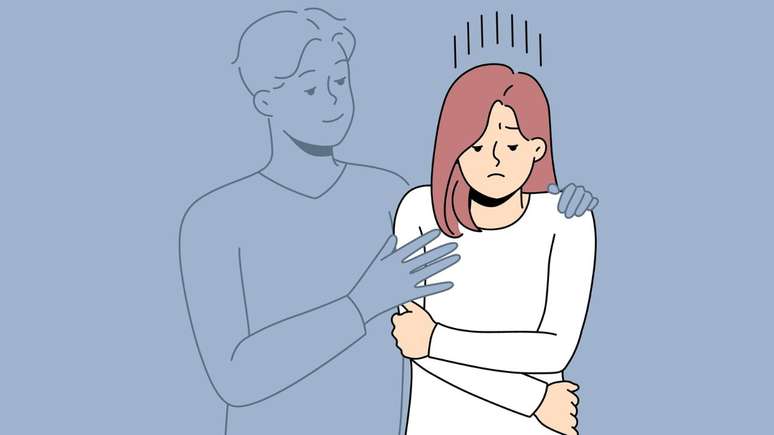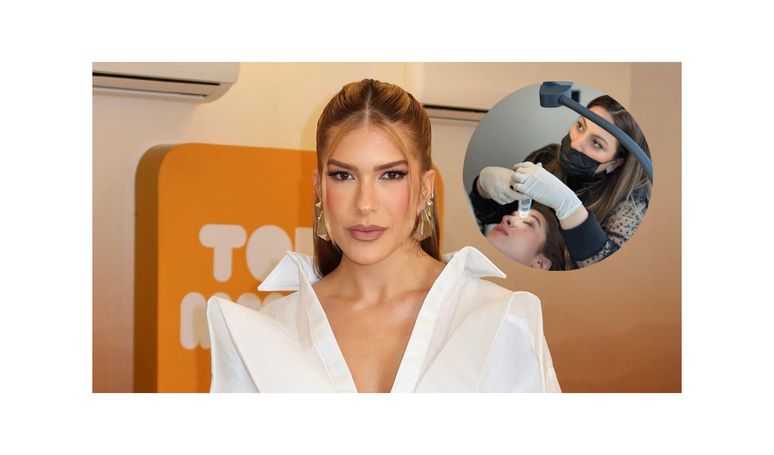What determines our mental well-being, according to a psychiatrist, goes beyond our genes and brain chemistry and includes inflammation, gut health, sleep and nutrition, among others.
If you have had difficulty with mental health in recent years you are not alone.
We were already experiencing an anxiety epidemic before pandemic and anxiety rates continue to climb. The global prevalence of anxiety and depression grew 25% in the first year of the pandemic, according to the World Health Organization (WHO)🇧🇷
In the face of this crisis, the mental health field offers some suggestions. The old consensus is that mental health problems are the result of a chemical imbalance written into our DNA. The implication is that our anxiety is chemical, it’s determined by our serotonin levels, and it’s our genetic destiny. Healthcare providers offer drugs and therapy to change our patterns and relieve our supposed serotonin deficiency.
But what if these options don’t work for you?
While some people improve with current options, inaccessibility of therapy is high and many people with mental health problems experience frustrating outcomes with medication. Focus on chemistry brain it has led us to overlook much that affects our moods: the body plays a critical and often overlooked role in mental health. For those who have not found satisfactory relief from medications and therapy, this may be good news.
What determines our mental well-being goes beyond our genes and brain chemistry to include inflammation, brain health, intestine, sleep, nutrition, hormones, chronic limbic hyperarousal – caused by trauma – and even includes the fact that our human need for contact with nature, engagement with our communities and sense of meaning in life are not met. If we have what is known as a chemical imbalance, it is probably a side effect of these other states of imbalance.
In other words, it’s not all a product of our heads; it is mostly something based on our body and that is what we should focus on.
I believe there are two types of anxiety: true anxiety and preventable anxiety. True anxiety is our inner compass that prompts us to pay attention to what’s not right in our personal lives, in our communities, and in the world. It is not something to be repressed or pathologized.
It’s not what’s wrong with us, it’s what’s right when we can viscerally address what’s wrong with the world.
In true anxiety, our symptoms are communicating something, and that needs to be listened to and honored. Instead of asking, “How can I stop feeling so anxious?” we should ask, “What is my anxiety telling me?” There is often a call to action in our anxiety, and when we let our discomfort be the fuel for meaningful action, we don’t feel mired in our anxiety.
Avoidable anxiety, on the other hand, is often as simple as our bodies tripping over an anxiety response. fatigue, which transmits a signal to the brain that tells us something is wrong. So the human brain – the creator of what makes sense – offers a narrative of why we feel restless. It tells us we are anxious about work, our children, or the state of the world.
But the truth is, there will always be something that makes us restless. And the reason we’re anxious right now may have nothing to do with, say, the office, and much more to do with the state of our physiological imbalance — something as seemingly benign as a drop in blood sugar, a hangover or an extra iced coffee that day.
Much of our anxiety, in this sense, is unrelated to what we think it is. The solution isn’t to go after every source of suffering in the world, but to address preventable anxiety at the level of the physical body, eliminating unnecessary stress responses and letting go of much of our anxiety.
When we recognize that we have anxiety created by a physical response, we can address the issue at a body level by keeping our blood sugar stable or by going to bed earlier. In other words, this type of anxiety is common, causes immense suffering, but can be prevented.
When I work with patients, I start with an avoidable anxiety: It’s the easiest fruit to pick. We have created an inventory of preventable anxiety. At a time of peak anxiety, this list can prompt them to think about the possible causes of a sudden stress response taking over their body, help them identify the specific preventable anxiety they may be experiencing, and figure out their direct remedy.
An avoidable anxiety inventory might include:
- Hunger
- lack of sleep
- too much caffeine
- Hangover
- intestinal problems
- Inflammation
- Long periods of sedentary life
- Chemical relapse after consuming highly processed foods
- Late luteal phase (the days before the bleeding phase of the menstrual cycle)
- Between-dose withdrawal (the pharmacological minimum in which you should take the next dose of a psychiatric drug)
avoidable anxieties
Identifying when our anxiety has a physical basis doesn’t make our problems go away. But it can help us recognize when a physiological imbalance makes everything feel a little more overwhelming than it really is. This inventory allows us to address the causes of preventable anxiety by snacking, popping a pill, or going for a five-minute walk. And we can plan to go to bed a little earlier in the evening.
Over time, identifying our avoidable anxieties takes some of the weight off our moods, helps us deal with the problem in the moment, and gives us the insights to keep our physiology more stable moving forward. It also helps shift the balance from oppression to resilience while strengthening our attunement to the inner workings of our bodies.
While our cultural attitude toward mental health is to view it as a genetic destiny and a matter of troubled brain chemistry, much of our anxiety is ingrained in the body and is preventable. The concept of preventable anxiety doesn’t imply that our problems aren’t real. Instead, eliminating unnecessary stress responses can make us more resilient in the face of unavoidable stressors.
This is a reason to feel confident and empowered. Much of our anxiety is needless suffering, and a few small, strategic changes to our diet and habits can eliminate the stress responses that drag us down.
Bringing our physiology into balance also clears the air and allows us to tune into our true anxiety. Once we hear that high note, we know how to see what matters most in our lives, come back into alignment, and make our unique contribution to this world.
🇧🇷Ellen Vora is an integrative psychiatrist in New York City and the author of The anatomy of anxiety🇧🇷
🇧🇷The best content in your email for free. Choose your favorite Terra newsletter. Click here!
Source: Terra
Ben Stock is a lifestyle journalist and author at Gossipify. He writes about topics such as health, wellness, travel, food and home decor. He provides practical advice and inspiration to improve well-being, keeps readers up to date with latest lifestyle news and trends, known for his engaging writing style, in-depth analysis and unique perspectives.








